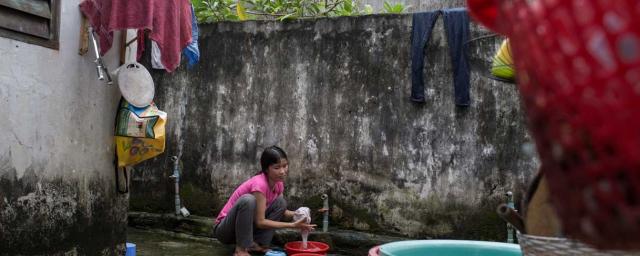
After years of institutional and economic reform, Vietnam’s poverty rate declined rapidly. In 1990, Vietnam was among the world’s poorest countries with a GDP per capita of $98. By 2010, GDP reached $1,000. Vietnam is now defined as a lower middle income country by the World Bank.
Of the total Vietnamese population of 88 million people (2010), 13 million people still live in poverty and many others remain near poor. Poverty reduction is slowing down and inequality increasing with persistent deep pockets of poverty. This is especially true for ethnic minorities, who make up for 14 percent of the population, but account for half of the country’s poor people.
Oxfam in Vietnam
In Vietnam, Oxfam is recognized as one of the leading international non-governmental organizations, especially in rural development, disaster risk reduction and humanitarian response, civil society development, ethnic minorities, and women’s empowerment.
We have been working in Vietnam since 1955, when we made our first humanitarian grant. After several decades of supporting humanitarian responses, we started to focus on development work in the late 1980s.
We work with communities, the government, civil society organizations and other NGOs to promote equity, human development and economic well-being through social and economic change.
Focus of our work
Over 2010-2011 we helped more than 400,000 people in Vietnam. Our five focus areas are:
- improve livelihoods for people living in rural areas, especially ethnic minorities and women;
- improve livelihoods for migrant workers in urban areas, especially migrant women;
- reduce vulnerability and increase adaptability to disasters and climate change;
- empower women to gain more control over their lives, increase their economic and political power, and gain more space to express their voices and claim their rights;
- empower communities and civil society to take part in public policy, the social and economic development of the country, a strengthened governance (rule of law) and government accountability.
Related links
Read details of Oxfam's work in Vietnam (in Vietnamese, pdf 1.1MB)
Check out our Oxfam in Vietnam's website, our blog or Facebook page.